Why NHL Superstar Connor McDavid Could Be The Next Wayne Gretzky
Everything you need to know about the 20-year-old hockey phenom before his Edmonton Oilers take on the Anaheim Ducks tonight.
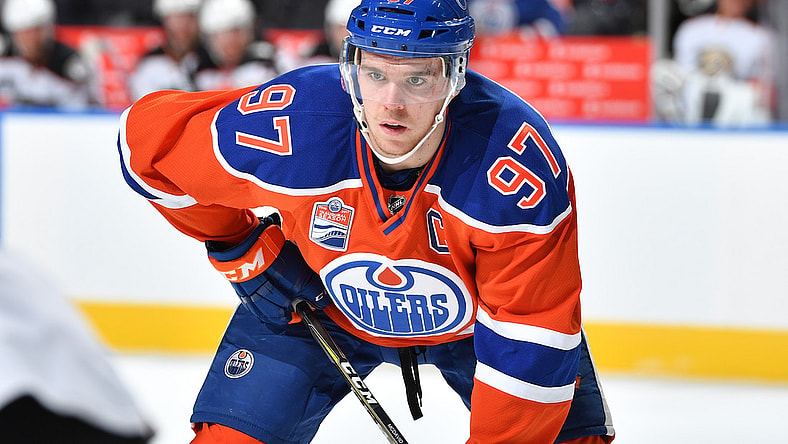

Connor McDavid grew up in Newmarket, Ontario, as a Toronto Maple Leafs fan. So you can imagine that, as a teenager, he would be psyched about going to the Air Canada Centre for a game between the Leafs and the Edmonton Oilers last November 1.
He had a pretty good view of the action, too, given that he plays center for Edmonton. “I was so bad,” he says, stifling a giggle at the thought. “It might have been over excitement. It was probably the worst game I’ve had this season.”
That night was an aberration: McDavid, who turned 20 in January, is lighting up the National Hockey League this season and fulfilling the promise he showed as a 15-year-old, when Hockey Canada granted him “exceptional status” so he could turn pro before he passed Algebra II. “I started to realize then that things are a little bit different for me,” he told Maxim.
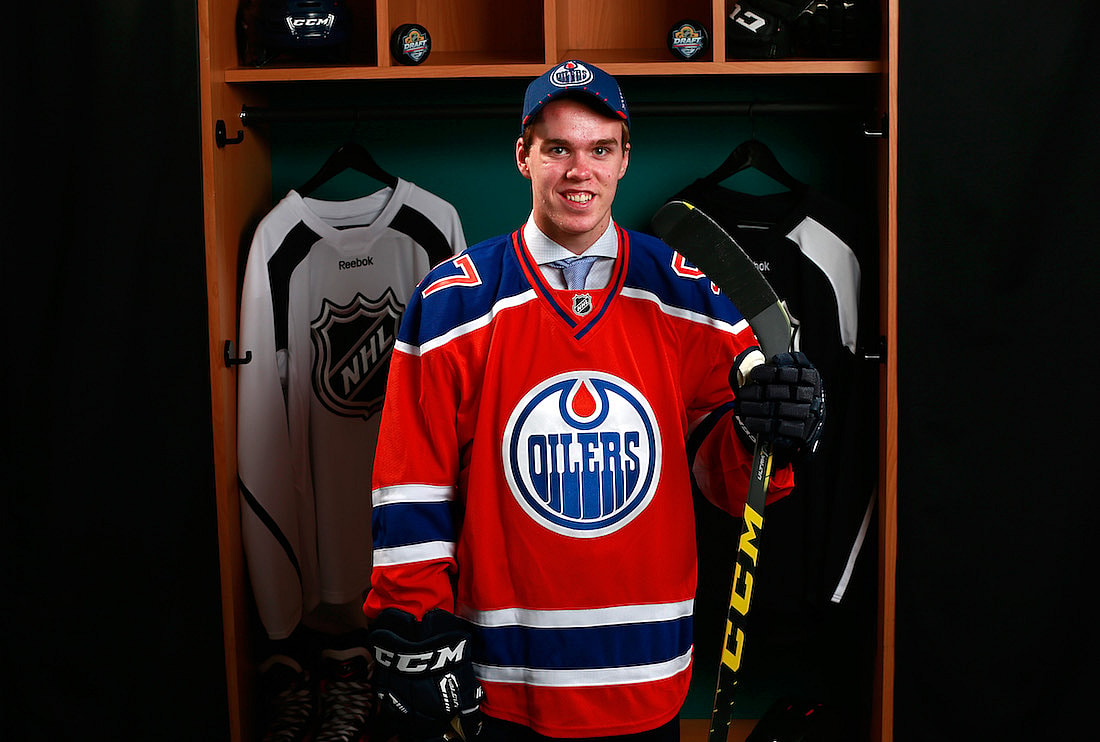
Rarely does a player come along burdened with such enormous expectations. When he was selected as the NHL’s No. 1 pick in 2015 by the Edmonton Oilers, McDavid officially became the Next One, the designated successor to the Great One, Wayne Gretzky, who delivered four Stanley Cups during his time in Canada’s petrol capital.
That’s an enormous legacy to shoulder, but it’s not the only one. McDavid’s mission is not merely to resuscitate the moribund Oilers franchise but, along with newcomers such as Toronto’s Auston Matthews, he’s also the face of what the NHL hopes will be a new generation of superstars that will broaden the appeal of the sport.
Not that the load weighs on him. “I just don’t think about it like that,” McDavid says. “It’s just part of the process. I never think, You’re supposed to come in and do all this and change everything.”
Yet he has changed everything. In his second full season—his rookie year was cut short by injury—McDavid has been at the top of the NHL leaderboard in points (goals plus assists) and put the Oilers on course to make the playoffs for the first time in 10 years. He’s filled the team’s new arena, Rogers Place, not only with hope but with wins.
He’s the youngest team captain in NHL history. None other than Gretzky himself has anointed him: “I don’t think there’s any question that Connor’s the best 19-year-old hockey player I’ve ever seen,” the Great One said at a press conference in October. “This kid is special.”
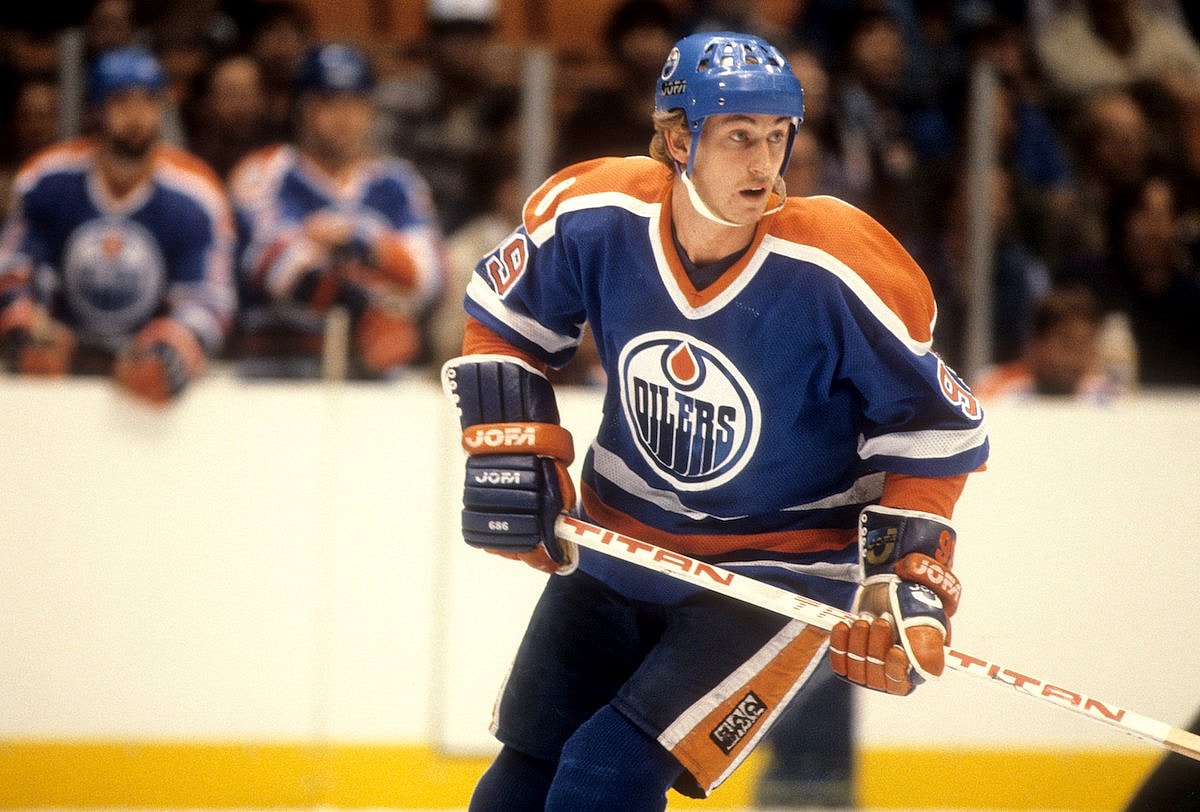
What makes McDavid so special? He’s got a sprinter’s feet, a pianist’s hands, and the misdirection of a three-card monte dealer duping out-of-towners. He can use any of these tools or combine them.
First, there’s his speed. McDavid is the fastest skater in the league, with the jets to simply blow by opponents, one his favorite moves being a right-to-left cut that leaves defensemen backskating out of the arena. “I don’t quite get how, his
first three steps, he can separate from players so quickly,”
said Dallas Stars center Tyler
Seguin during the NHL’s All-
Star event. “And even more
impressive, how he can do it
almost quicker with the puck
than without…That’s a differ
ent fast.” McDavid can also
thread his way through traffic,
dragging the puck through
opponents’ feet in what’s known
as an in-and-out move, a kind of
now you see it, now you don’t
magic that leaves them simply
trying to find the puck.
Most important to his
teammates, McDavid is the
type of player who makes the
guys around him better. If
they’re open, he finds them,
often with passes that the
defense isn’t looking for. He
even likes occupying what
Gretzky used to call his
“office,” dishing from behind
the opponent’s net. That’s one
reason McDavid leads the
league in assists. Another is
that he’s a lethal back-checker,
too, using his speed to swipe
the puck from unsuspecting
forwards and creating instant
offense.
NHL hall-of-famer Luc Robitaille, Gretzky’s former linemate and now presi
dent of business operations at
the Los Angeles Kings, loves
McDavid’s ability to command
attention as well as the ice. “In the new era of our game, where it’s faster and the goalies are better,” he says, “you could clearly tell watching him that he’s special. It’s very rare that you could see a player that, every time they go on the ice, there’s something happening.” Even casual fans can pick him out, says Robitaille: “He’s clearly a benefit for the league. He’s one of those players everybody is going to see for ages.”
This being the NHL, anyone with that kind of skill and speed is subject to unrelenting efforts to slow him down: pushing, holding, tripping, or, as happened in late 2015, getting run into the boards. McDavid’s rookie season ended abruptly when two Philadelphia Flyers defensemen ran him, breaking his clavicle. And guess what? McDavid is holding a professional grudge: In a game against the Flyers in February, he scored once and had two assists in a 6-3 rout, moving the Oilers closer to that coveted playoff spot.
Living up to expectations in professional sports may be harder than playing the game itself. Getting labeled as “the next Messi” or “the next MJ” can be a tremendous weight on a player’s back—just ask Penny Hardaway—but McDavid wears it like a comfortable hockey sweater. “There’s no secret; it’s the pros,” he says. “The game’s a little different: You are expected to be at your best every minute. That’s the part where I’m the most comfortable.”
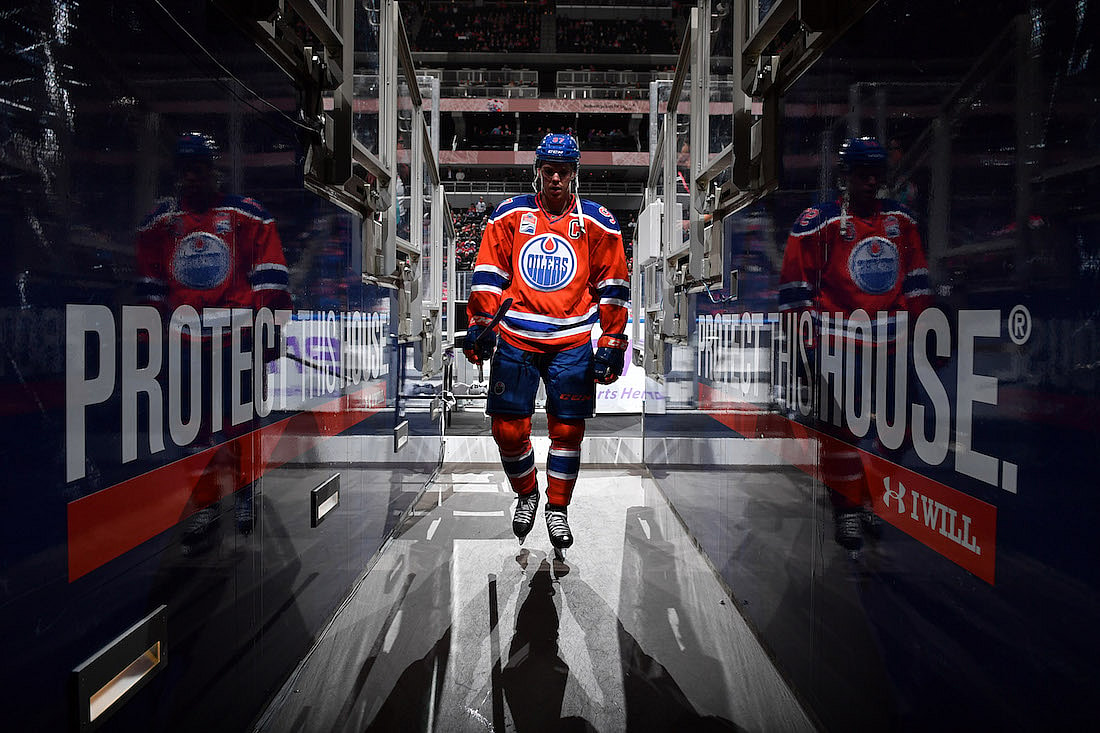
If McDavid is comfortable on the ice with players who are largely older and more experienced, it’s because he grew up on skates—more so even than most Canadian kids. “I started skating at a very young age and
fell in love with hockey at very early age,” he says. When he wasn’t on skates he was on Rollerblades, running through an obstacle course set up in the driveway. Born in 1997, he began playing against older kids from the time he was four years old. “My first time playing against 97s [guys his age] was in the OHL.” That’s the Ontario Hockey League, the NHL’s junior development league. He played on Canada’s Under-18 team as a 16-year-old and won a gold medal at the junior world championships.
But McDavid was on the hockey radar well before he got to the OHL. As a 13-year-old, he had followed his 16-year-old brother, Cameron, to a hockey camp run by Boston Bruins legend Bobby Orr. “I was basically a tagalong,” he says. A year later, Orr arrived at the McDavid family’s doorstep for lunch. Understand that, for most Canadians, this is the equivalent of God stopping by for a sandwich. And God wanted to sign Connor McDavid.
“My mother was super nervous. She cleaned every part of the house she thought he might see,” he laughs. His father, a Bruins fan, signed Orr’s agency to represent his son. McDavid would become the property of the Erie Otters, spending three
years there living with a “billet family.” He quickly became a sensation, his play making life worth living in Erie in January. “Moving to the States and away from the family, I didn’t really know anyone,” he says. “That was hard for me, a 15-year-old having to meet a whole new group of people.”
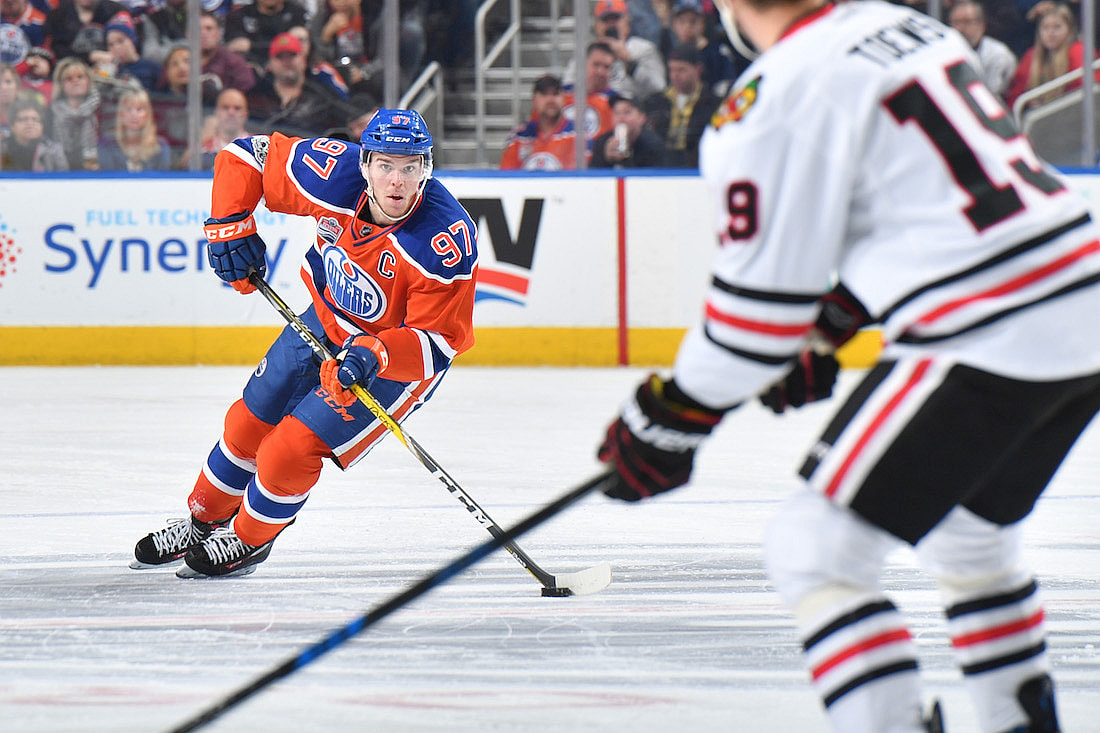
And as a 19-year-old playing his first season in the NHL, there were new experiences, too, including living on his own for the first time. “The NHL is everything you dreamed of and more,” he says. “It’s hard to explain what that’s like in the first month: You travel around in a chartered plane, you stay at the Ritz around these pro guys, and you’re playing against Ovechkin”—as in Alex Ovechkin, the Russian wizard, one of the world’s greatest players.
But once the wonder wears off and defensemen are trying to paste you to the boards, the reality of big-time hockey sets in. “You looked up to them,” says McDavid, “and now you have to try to find a way to beat them.” And that’s exactly what the Next One is doing.
